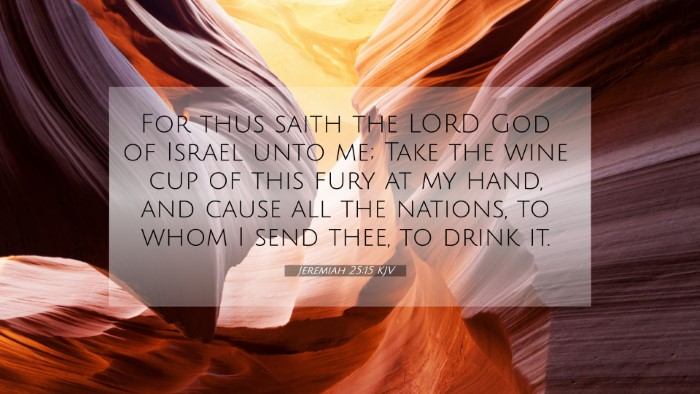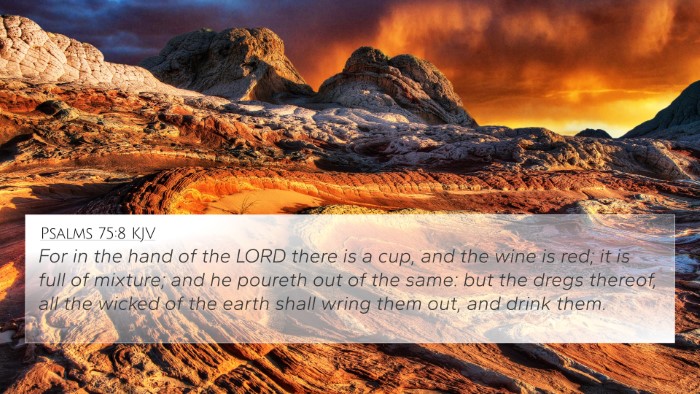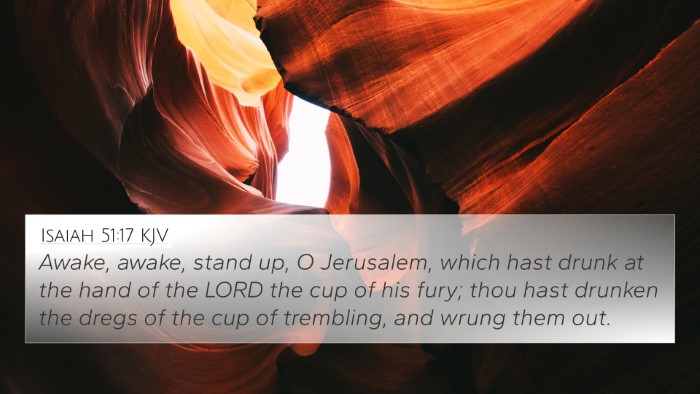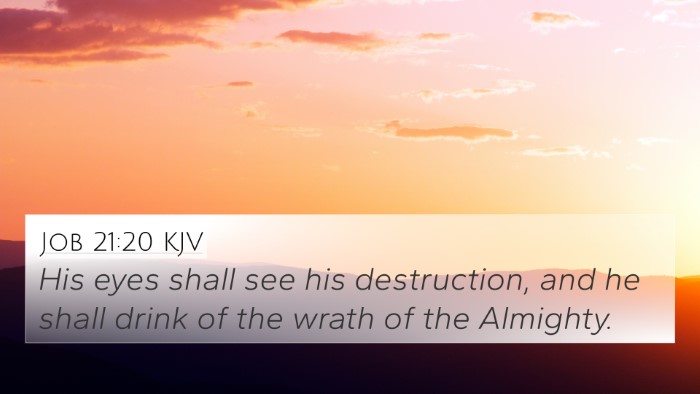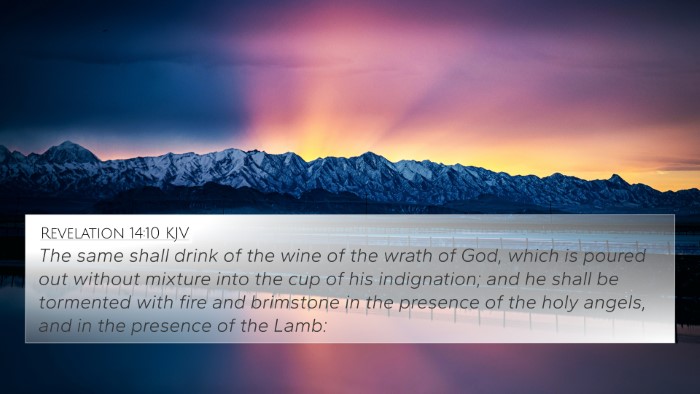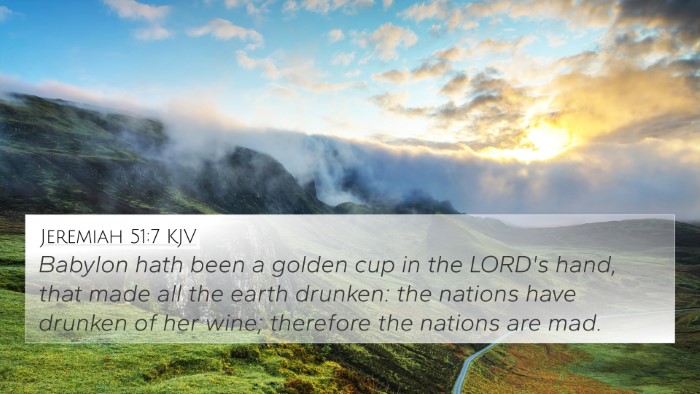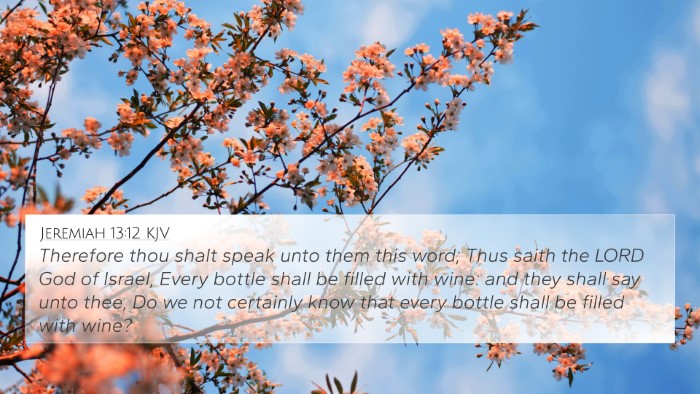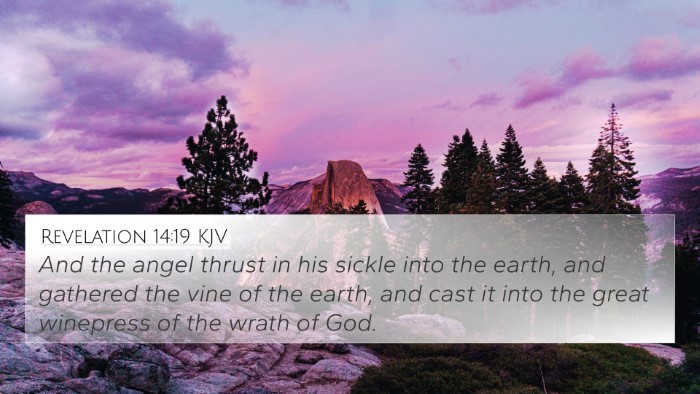Understanding Jeremiah 25:15
Jeremiah 25:15 states: "For thus saith the Lord God of Israel unto me; Take the wine cup of this fury at my hand, and cause all the nations, to whom I send thee, to drink it." This verse is rich in context and meaning, serving as a pivotal point in the prophetic ministry of Jeremiah. The insights drawn from esteemed public domain commentaries shed light on its deeper implications and connections to other scripture.
Summary of Insights
-
Divine Judgment:
According to Matthew Henry, this verse signifies the impending judgment that God was preparing to pour out upon the nations. The cup of wine symbolizes God's wrath, indicating that these nations would face judgment for their transgressions.
-
Prophetic Call:
Adam Clarke emphasizes Jeremiah's role as a prophet who must deliver God's message. The act of taking the cup and making nations drink signifies the authority given to Jeremiah to deliver the grim news of judgment to various nations, not just Israel.
-
Comprehensive Reach:
Albert Barnes points out the comprehensive nature of the judgment, where several nations are involved, which serves to show that no nation is exempt from God’s sovereign authority and moral standards.
Thematic Connections
This verse not only contains themes of judgment and prophetic announcement but also connects to several other scripture references that emphasize God’s sovereignty and justice. Below are notable cross-references that enrich the understanding of Jeremiah 25:15:
- Revelation 14:10: Talks about drinking from the wine of God’s wrath, paralleling the cup of fury.
- Psalms 75:8: Refers to the cup of divine wrath, echoing the theme of judgment.
- Isaiah 51:17: University calls upon Jerusalem to "drink the cup of God's fury," showing thematic similarities.
- Habakkuk 2:16: Discusses being filled with shame instead of glory, highlighting the repercussions of arrogance before God.
- Matthew 26:39: Jesus’ prayer about the cup reveals a New Testament reflection of taking on sin and judgment.
- Zechariah 12:2: Describes Jerusalem as a cup of trembling for the surrounding nations, pointing to the consequences of divine judgment.
- 2 Chronicles 36:16: Recounts the nation's refusal to heed the prophets, which culminates in judgment.
Cross-Referencing Biblical Texts
Engaging in cross-referencing Biblical texts can illuminate deeper understandings of how scripture speaks to itself. Below are methods and tools that can help enhance one’s study of Jeremiah 25:15:
- Bible Concordance: A useful tool for locating scripture references related to specific words or themes.
- Cross-Reference Bible Study: Facilitates understanding of scripture interconnections across both Old and New Testaments.
- Bible Chain References: Links verses together based on thematic elements for comparative analysis.
- Comprehensive Bible Cross-Reference Materials: Resources that provide an extensive network of cross-references to enrich study.
- Identifying Connections Between Old and New Testament: Understanding how New Testament teachings fulfill Old Testament prophecies.
User Intent and Further Exploration
Readers may find themselves wondering about the broader implications or connections of Jeremiah 25:15. Consider the following queries that may guide your exploration:
- What verses are related to Jeremiah 25:15?
- How do Jeremiah 25:15 and Revelation 14:10 connect?
- Which other Bible verses support the themes found in Jeremiah 25:15?
- Similarities between Jeremiah and the teachings of Jesus in Matthew 26:39.
Conclusion
In conclusion, Jeremiah 25:15 serves as a critical junction in biblical prophecy, offering profound insights into the nature of God's judgment and the role of prophetic voices. By employing tools for Bible cross-referencing, one can uncover a tapestry of connections that deepen the understanding of this and associated verses, leading to a more comprehensive grasp of the scriptural narrative.


